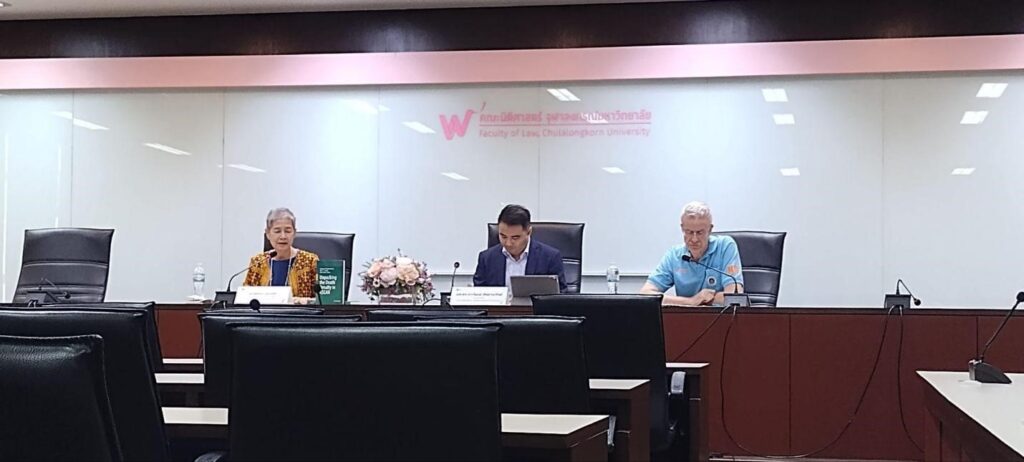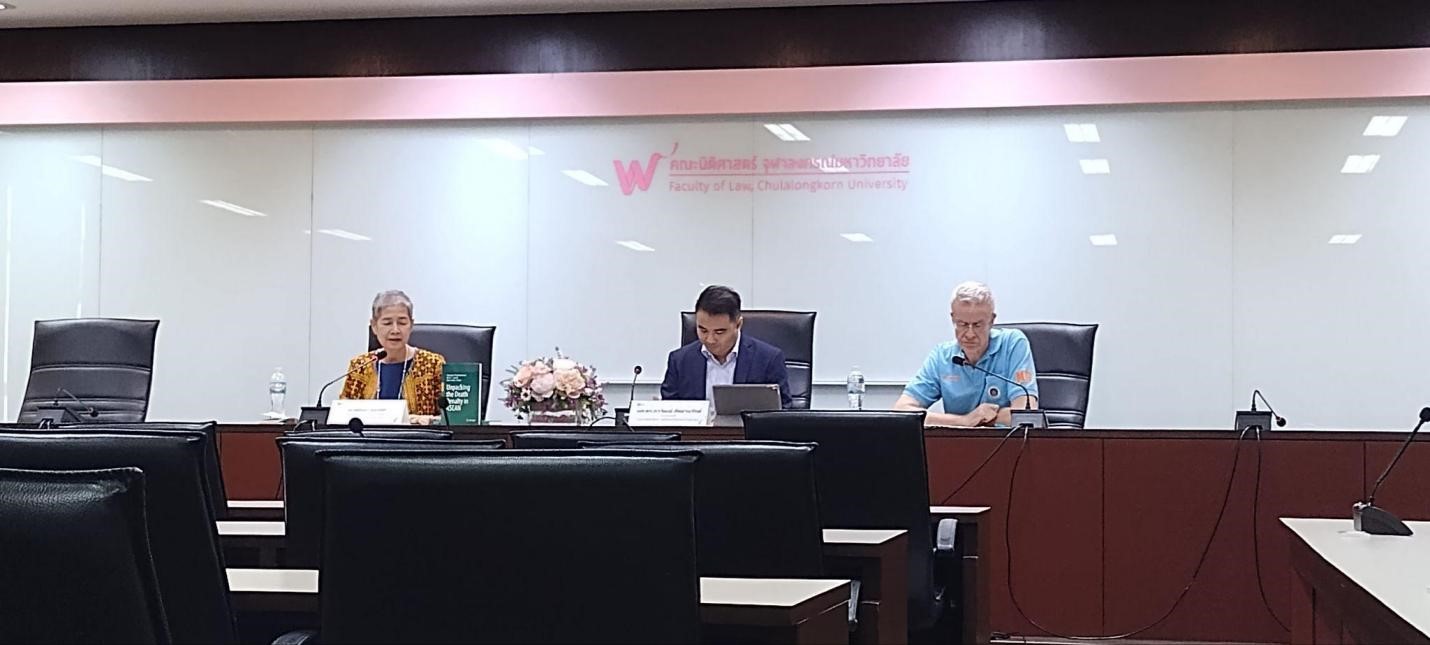
(Panelists from left to right: Sriprapha Petcharamesree, Pawat Satayanurug, Mark Peter Capaldi)
On 15 September 2023, a team from HDFF attended the “75 Years of UDHR: Assessing the FOUR Freedoms Series #2: Right to Life” seminar to commemorate the International Day of Democracy at the Faculty of Law of Chulalongkorn University. This event, hosted by the Faculty of Law of Chulalongkorn University, the Institute of Human Rights and Peace Studies of Mahidol University, and the University of Swansea in the UK, invites scholars, advocators, representatives to the Association of Southeast Asian Nations (ASEAN), and member of the UN Committee on International Covenant on Economic, Social and Cultural Rights (ICESCR). This event shed light on a comprehensive understanding of the death penalty from the perspective of common interpretation, jurisdiction, media role, public opinion, and human rights law.
The welcome remark was presented by Asst. Prof. Dr. Pareena Srivanit, the Dean Faculty of Law at Chulalongkorn University, and Dr. Vachararutai Boontinand, the Director of the Institute of Human Rights and Peace Studies at Mahidol University. They stressed that the enforcement of the death penalty should follow the principle of justice and proportionality, rather than just as a political strategy that brings detrimental effects to society.
Dr. Seree Nonthasoot, the former Thai Representative to the AICHR and member of the UN Committee on ICESCR, stressed the importance of inclusiveness, non-discrimination, and equality when decoupling the concept of the right to life by examining the General Comment from the Human Rights Committee, Sustainable Development Goals (SDGs), and the current death sentence data in Thailand. Moreover, he stated that the right to life was also related to other fundamental rights, so a more systematic way would be necessary other than the approach from the justice system.
Following his inspiring keynote speech, the panel discussion was moderated by Pawat Satayanurug, the Vice Dean of the Faculty of Law at Chulalongkorn University, and presented by Sriprapha Petcharamesree from the Faculty of Law at Chulalongkorn University, Mark Peter Capaldi from Institute of Human Rights and Peace Studies at Mahidol University, Maita V. Chan-Gonzaga from Faculty of Law at Ateneo de Manila University and Edmund Bon Tai Soon, the Former Malaysian Representative to the AICHR. At the beginning, Sriprapha Petcharamesree gave the common interpretation of the right to life and considered that the death penalty should only be imposed for the most serious crimes, and the scope should not go beyond international crimes with lethal or other extremely grave consequences. She also recommended that the ASEAN region should construct a “common basis” for the death penalty. Then, Dr. Mark Peter Capaldi argued that there were limited evidence-based studies showing that capital punishment deterred serious crime from philosophical and theoretical models of deterrence perspective, so the hypothesis that the death penalty deterred serious crime cannot be factual-supported and should not be used as a jurisdiction to enforce the death penalty. In addition, scholar Maita V. Chan-Gonzaga from the Philippines and advocate Edmund Bon Tai Soon from Malaysia discussed how the media played a role in shaping the perception of the death penalty and the generally positive trend of public opinion towards the death penalty in ASEAN countries. However, they also emphasized the potential bias in the study from sampling size to how the public supports are full of nuances because of the lack of data available for the general population, especially in authoritarian countries. At the same time, they also drew attention to the power of social media in decentralizing the spread of information to counteract authoritarian governments strongholds on traditional media outlets.
HDFF thanks Chulalongkorn University, Mahidol University, and the University of Swansea for their hospitality to attend this seminar discussion and is looking forward to joining other events to uphold democracy.


Comments are closed